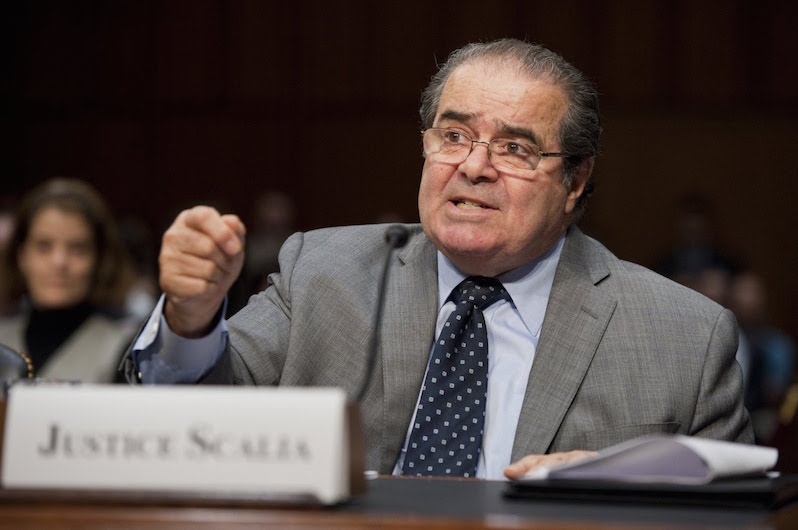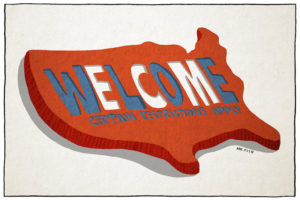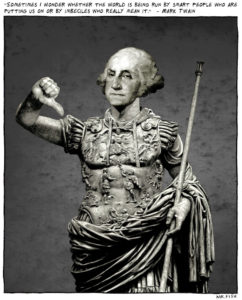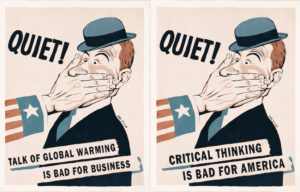Antonin Scalia and the Clear and Present Danger of Second Amendment Fundamentalism
The late Supreme Court justice, having bestowed the Constitution's blessing on personal gun rights, bears responsibility for our collective impotence in response to the madness of gun violence in America. Antonin Scalia, a Supreme Court justice from 1986 until his death in February, brought an incendiary temperament to the bench. (YouTube)
1
2
Antonin Scalia, a Supreme Court justice from 1986 until his death in February, brought an incendiary temperament to the bench. (YouTube)
1
2
Like its religious counterpart, gun-rights fundamentalism views society through a simplistic filter, populated, in LaPierre’s nauseating catchphrase, by “good guys” and “bad guys.” The armed citizenry is mythologized and lionized. Government regulation—especially at the federal level—is met with suspicion, paranoia, fear and, whenever possible, rejection.
To be sure, there are important economic factors that also undergird the largely Republican opposition to gun control. The NRA’s campaign contributions, lobbying and ad budget are enormous, and its determination to defeat hostile candidates at the polls is legendary.
But it is the fundamentalist ideology that gives the gun-rights camp respectable public cover in the face of one mass shooting after another, and which, thanks to Scalia, endows it with the imprimatur of constitutional law.
It would be one thing if Scalia had gotten the historical analysis of the Second Amendment correct in Heller. But the tragic fact is that he got it so thoroughly wrong.
As former Justice John Paul Stevens noted in his lengthy dissenting opinion in Heller, Scalia’s exegesis not only rendered the opening “militia clause” of the Second Amendment meaningless, but he also distorted and underplayed the importance of the actual debates conducted during the founding era on the amendment’s purpose and meaning. Those debates, Stevens forcefully argued, focused not on personal gun ownership but on the state militia, which the founders viewed as an antidote to a burdensome and potentially oppressive permanent standing federal army. The militia were seen as the best means for “providing for the security of a free State” against popular insurrections like Shay’s rebellion, the anti-tax uprising of Massachusetts farmers of 1786-87 that exposed the weaknesses of the fledgling national government as constructed under the Articles of Confederation.
In the end, the Second Amendment was worded as a federalist compromise, with the states retaining their right to organize militia and other provisions of the Constitution (for example, Article II, Section 2), clarifying that ultimate control over the militia would vest in the executive branch of the federal government. Personal gun ownership rights were left, as they had been during the colonial period, to the police powers of local government.
Following Heller, Scalia’s scholarship was widely panned by respected historians such as Jack Rakove of Stanford University for its “faulty rethinking of the Second Amendment” and Saul Cornell of Fordham University for being “a constitutional scam” and “an intellectual shell game in which contemporary political preferences are shuffled around and made to appear part of the Constitution’s original meaning.”
That Scalia got it so wrong matters not just to students of constitutional law, but also to everyday people who want to prevent the next Mateen or Dylan Roof from getting their hands on easily acquired firearms.
Although Maine Sen. Susan Collins, a Republican, has introduced a still-pending bill that would prevent those on the government’s “no-fly” list from buying guns, no new federal gun-control legislation has been passed by both houses of Congress since Heller. And since McDonald, the Supreme Court has refused to hear another Second Amendment case, in which Heller’s analysis might be reversed or narrowed.
Instead, we have a patchwork system in which some states, such as Connecticut, California and New York, have adopted tough restrictions on semi-automatic weapons and the issuance of concealed- and open-carry gun permits, while many others, including Texas and Florida, make it possible to obtain AR-15s in less than 10 minutes.
So if you’re looking for someone to blame for our collective impotence in response to the madness of gun violence in America, by all means point an accusing finger in the direction of Congress and the NRA. But don’t forget to include the departed Antonin Scalia, who gave gun rights the blessing of the Constitution and the highest court in the land.
Your support matters…
SUPPORT TRUTHDIG
Independent journalism is under threat and overshadowed by heavily funded mainstream media.
You can help level the playing field. Become a member.
Your tax-deductible contribution keeps us digging beneath the headlines to give you thought-provoking, investigative reporting and analysis that unearths what's really happening- without compromise.
Give today to support our courageous, independent journalists.





You need to be a supporter to comment.
There are currently no responses to this article.
Be the first to respond.